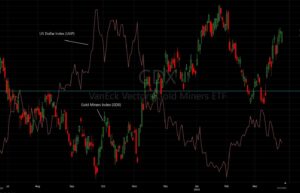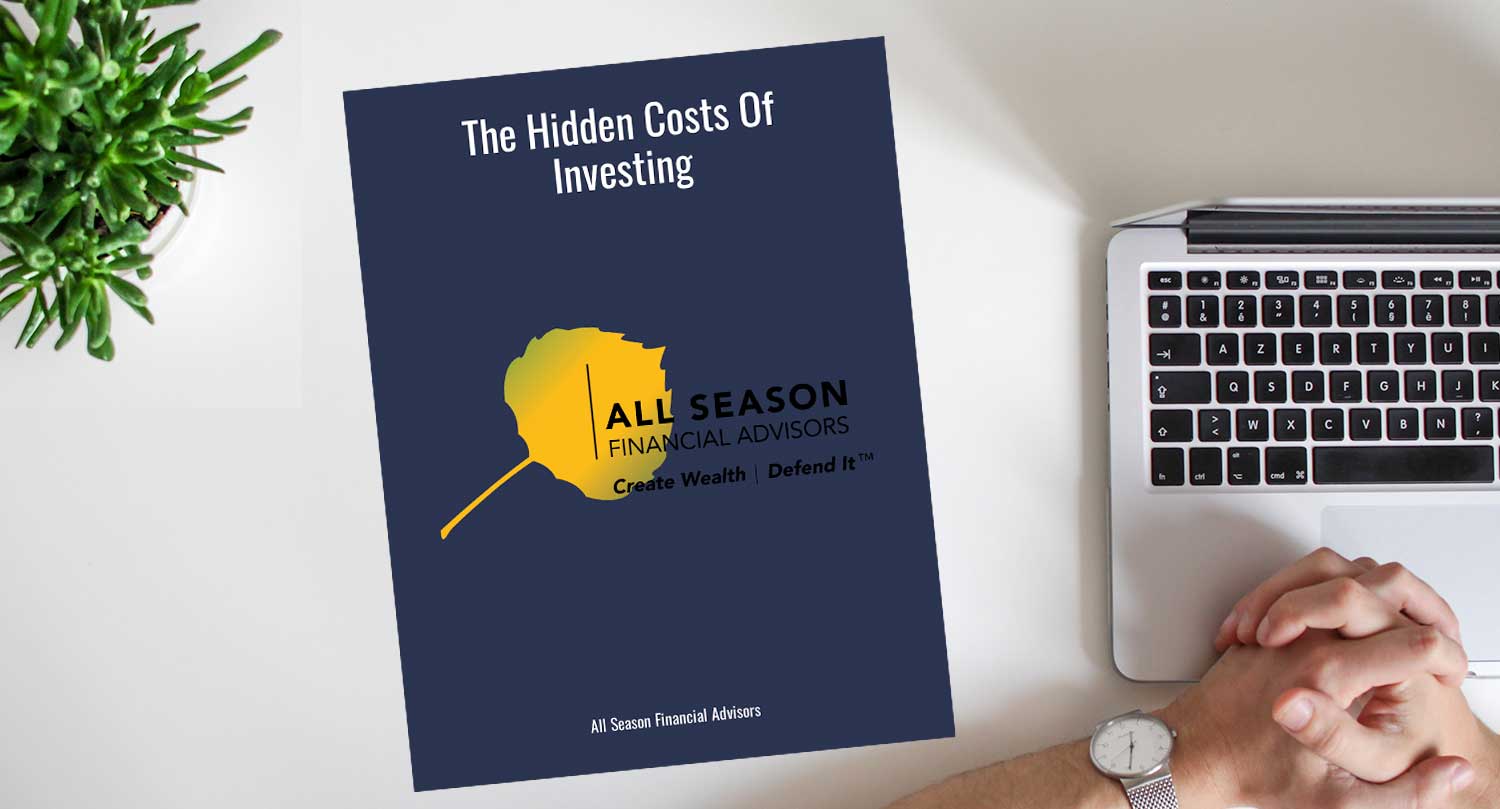
The markets in March were like watching Russell Crow in Gladiator sarcastically asking the bloodthirsty crowd if they wanted MORE death and despair. It seems the entire world loves a good financial train wreck and just can’t get enough. March was quite a month. It shook the foundation of financial stability and investor confidence. It was a month of capitulation for investors who finally threw in the towel and gave up on stocks, fearing a repeat of 2008 … or worse. It was entertaining but not in a good way.
For this update, I’m going to comment on my own commentary from last month. For the record, it’s bad form to quote yourself but I’m going to do it anyway because the format fits what needs to be said now about markets and economy. I’ll also dive into some anecdotal observations about remote work and implications for rural America. If you care to wade through it all, you’ll find solid context for some actionable reminders and ideas for personal financial decision making.
Quotes and follow up commentary from Feb 27th Red Sky Report:
The Federal Reserve chatter box and a few marginally inflationary economic reports, forced the financial markets on a detour from our path toward recession.
We are now back on the road and possibly in Recession already. Bonds are up, stocks and commodities are down. This is what happens to financial markets when the economy is going into recession. Don’t make this harder than it is.
“They (The Federal Reserve) will raise rates until they break something and that something is the US economy.”
Well, I guess it has started. The Federal Reserve is largely responsible for two of the largest bank failures in history representing assets over $300 Billion. Silicon Valley Bank failed on March 10th and Signature Bank followed on March 12th. Credit Suisse also failed blaming weakness in the US banking system and was sold to competitor UBS. There are likely more to come if we use history as our guide. I was amazed to see how many small regional banks have failed in the last 23 years. This is not an uncommon event if you look at the 48 PAGES of listed bank failures since 2000 on the FDIC site (https://www.fdic.gov/resources/resolutions/bank-failures/failed-bank-list/ ). But again, it seems that every failure now invokes bigger and louder crowd reactions than the past. Glass is breaking. Heads have turned, eyes are wide. As sick as it sounds, bank failures are actually helping the Fed bring the US economy to a complete standstill. Banks failures have the effect of quickly tightening financial conditions both in lending and capital reserve trends. All of this will put continued downward pressure on real estate, increase unemployment and eventually drive rents lower. This is what the Fed wants/ needs to happen.
Recessionary evidence is almost overwhelming now. Nationwide real estate prices are now down for the 7th consecutive month in a row and threatening to turn negative year over year even as a lagging data set. Leading economic indicators are down 6% in aggregate year over year. According to Bespoke, since 1960, this has never happened without the US economy being in recession or within 6 months of recession. Every broad measure of inflation, yes, every one of them including CPI, Core CPI, PPI, Import prices and so forth are now sharply lower and approaching the same levels as the spring of 2021. Wages remain high but have flattened and layoffs are accelerating to a point where we should start to see higher unemployment numbers, especially among high paying private sector jobs. We are very likely in recession already, but the headline is still forthcoming.
“Bonds can do OK but won’t really get much traction until recession realities become more dominant.”
And just like that, bonds are back- now that recession realities are “more dominant”. They say that the bond market represents the smart money, and the smart money is suggesting that the Fed is going to cut rates to 3.6% by this time next year! Seems ambitious but they do tend to get it right historically speaking. The good news is that we now have our old friend, the bond market, behaving as it normally does and acting as a much-needed safety net to stock volatility. Since the 9th of March, we have reinvested in short term Treasury bonds and investment grade corporate bonds in our diversified strategies, and it does feel very good to know that bonds are finally offering investors some true diversification to owning stocks. Captain, engine number one is fixed and ready for duty!
“Commodities are going to chop lower as the economy gets weaker and weaker in the months ahead.”
Indeed, commodities in aggregate, led by the energy sector, really gave up in the second half of March. This is all very consistent with economic cycles and trends as the US economy gets weaker and moves into recession. Gold is often described as a hedge against inflation. That’s not actually true. Gold and gold miners are a hedge against a falling US dollar which typically occurs in the early stages of a recession, like right now. In other words, we want to own gold when the US dollar is falling. You can see how the two are almost perfect mirrors of each other below. We have reinvested in gold and gold miners across several strategies this month as the US dollar continues to fall from its highs in September of 2022.

As a related side note, the crypto currency crowd would have you believe that digital currencies are also a hedge against a falling dollar and inflation. Again, this is also not true. Crypto has no correlation to the US dollar at all. Crypto is simply a hedge against chaos, anarchy and serves as a badge of honor for libertarians. Witness the fact that crypto and bitcoin were up over 40% during the few days of bank failure headlines. Banks were up 3% on Monday, Bitcoin was down 5%. Chaos and financial instability are good business for crypto it seems. I would not bet against the US financial system, nor our central banks’ willingness to spray unlimited cash to support it for better or for worse. Ironically, as we know now, 30% of the bank deposits of Signature Bank came from…. The crypto industry! Shady bank with shady customers. Signature Bank was closed by regulators and taken under control of the FDIC on March 13th. Chicken or the egg; we reap what we sow, etc.
Ok, let’s move on to other non-market trends
Current Trends in Remote Work
This is a fascinating evolutionary topic. Remote work certainly has it’s benefits in terms of efficiency, costs savings for office space, reducing traffic and commuter times, improved work life balance. But perhaps the most profound impact of the new remote work option is the fact that small, rural towns across the country have blown up in growth of new residents who have made permanent changes in their home environments given their new-found freedom to work outside of a company office. If you can work anywhere, why not work in a desirable location outside the city! Steamboat Springs, CO where I live is a classic example. Our town has been smashed with new residents, young families, folks from all over the country who have pretty healthy compensation and are allowed to work remotely – for now. I can barely afford to live here anymore as the prices for everything has shot up 30-50% in just the last couple years as our new residents seem willing to pay any price. I suspect we are not alone. Affordability of living in these small towns has dropped to a place and time where long time locals are being forced to leave.
Meanwhile, I’m now hearing stories of layoffs, especially among those remote workers who had high paying technology jobs in Texas, Chicago, and California. $250,000 salaries for remote workers are disappearing quickly and these folks are suddenly looking for local jobs paying $17-$20/hr. in service jobs or labor work. There is a substantial gap between their new life expenses and their new incomes. They won’t make it. This is starting to feel a bit like the gold rush era or the oil drilling towns of Virginia. When the work leaves, the town dries up.
At the same time, I also see a loud and serious call for workers to return to an office, eliminating the remote work option all together. Most companies are watching the productivity of their remote work force in serious decline. I have read commentary speaking to the value of in person meetings as related to creativity, work culture, and accountability. Young unmarried employees generally want to be in an office to meet other people and have some form of social life. Fun fact, 1 in 3 marriages originated with a workplace introduction. Now, nearly 40% of all fortune 500 companies have eliminated 100% remote work options and that number is growing.
As we head into recession, reducing head count is a natural event. Companies are literally using the back to work mandate as an easy way to have employees voluntarily leave. Subjectively speaking, it’s going to be rough for a lot of people who have really built a new life around remote working.
As such, I will make three forecasts:
- Many laid off remote workers will try to start new businesses in order to stay remote.
- We’re going to see unemployment rise somewhat dramatically as many choose to remain unemployed rather than be called back to the office. Now that the huge pile of COVID household savings has been largely depleted, I wonder how long they can hold their breath.
- Employers will develop different pay scales for office workers and remote workers. Remote workers will make less than office workers for the same job. The gap will be substantial.
Action Items and Insights
Ok let’s get down to some actionable ideas and insights considering all of the above. First let’s talk about your psychology at this important moment in economic history because behavioral economics is really all that matters in the end.
This is how you feel today:
We feel exhausted. Bear markets are exhausting.
We feel financially vulnerable and risk averse especially if one has experienced a job loss, or some severe pain in the financial markets in recent history.
We feel like the pain will never end and we are just beginning a long period of deteriorating financial conditions – yes, I can see you nodding your head.
We wonder what on earth will make things better again. What could possibly go right enough to fix (fill in the blank).
We want to quit, to get off the ride because the ride causes pain. Humans want to avoid pain, always.
This is how we feel as we observe the state of the financial markets as they forecast what seems like an inevitable recession ahead.
Successful investors are able to feel these emotions and yet recognize these emotions for what they represent, which is developing opportunity. We need to remember that very strong feelings of fear are a necessary part of every bear market low (as are bank failures for that matter).
The greatest return opportunities come when prices are low (check), pessimism and fear are high (check), the economy is in recession (check) and the Fed reverses monetary policy (pending). This is THAT time to get your head in the right place and think opportunistically.
Be the MVP in your company
Recessions and unemployment go hand in hand. If you are a young person, working for any company, wake up every day and say to yourself “I am going to be the most valuable employee in our firm”. This is a game of survival, and you want to stay employed with your income intact through a recession. Income gives you options to invest at lows. Income gives your freedom to maintain your standard of living regardless of the value of your investment portfolio. If your company says you need to return to work, pack your bags.
Retirees pay attention to your cash
Please reread last month’s update “All you wanted to know about cash” for ideas. I still see way too much cash sitting in non-interest-bearing checking and savings accounts. On Thursday, I am meeting with a US Bank representative to discuss their high yielding savings account options for our personal savings accounts. I expect to get at least 4% or I will gladly move to a bank that offers that rate on cash.
Another opportunity to reduce your exposure to mega cap tech as needed
As I look through investor portfolios outside of our management, I continue to see shocking exposure to a few mega cap tech names – Microsoft, Apple, Amazon, Google, Nvidia. Facebook (Meta) has disappeared as most apparently sold after the stock fell 75%. In the last 2 months, these stocks and many brand names in technology, have seen some enormous moves higher. But the trends are still down, earnings are still weak relative to price and growth and is not the place to be as we head into recession. If you have an outsized position in the FAANG names or any other tech company for that matter, you now have another opportunity to consider reducing some of your position size. This should be done with consideration of taxes, your objective and your total portfolio asset allocation in mind. Please feel free to reach out to us if you need some consult.
Be Less Flashy
I just reread Morgan Housal’s book “The Psychology of Investing”. It’s good and I don’t say that lightly because I have read everything and most of it is junk. One of his points that is worth mentioning here and now is that no one is as impressed with your consumption as you are. I don’t care what kind of car you drive. I am not impressed with flashy shows of wealth. I am inspired by people who have built lives of financial freedom, who have time and the means to do whatever they want, whenever they want. Morgan says that the purpose of wealth is to provide options and freedom of choice. As the world becomes more and more expensive with persistently higher inflation over the next decade, it’s going to be harder and harder to maintain that veneer of wealth. Someone will always push your spending up to them, to compete with their consumption, to join the club (literally). I have no issues spending money on things that are important but do have a hard talk with yourself about what is actually important in your life. You will not remember your “stuff” on your death bed. Meaningful relationships and lifetime experiences are all that really matter in the end. Spend accordingly.
I hope to see signs of Spring soon because I am climbing the walls (6-foot walls of snow).
My best to all.
Sam Jones

